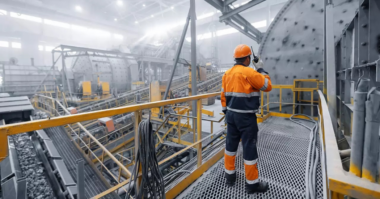The power industry is changing. In addition to increased demand for electricity, new government legislation is imposing more stringent emission controls on coal-fired power plants (CFPP) and the amount of CO2 they can produce. Even as existing CFPPs retire due to the inability to comply with new restrictions, very few new plants are being approved for construction to replace them. As a result, remaining power plants must operate more efficiently to address increased demand. Power plant efficiency/heat rate, therefore, becomes an issue. One way to achieve higher efficiency, improve uptime, availability and reliability while reducing heat rates is to optimize motor-driven pump systems.
A new webinar series from the Hydraulic Institute entitled Power Plant Pumps: Application and Operation for Maximum Uptime, Availability and Reliability addresses this topic starting Feb 20th. Recommended for those with broad exposure to power plant pumping systems and those who want to optimize systems, the webinar will provide practical information on pumps used in power plant applications, particularly in 400 megawatt size combined-cycle plants in North America. Major categories of featured pumps include boiler feed, boiler feed boosting, condensate, condenser circulating, boiler circulating and heater drain.
Highlights of Power Plant Pump Webinar Series
More specifically, the power plant pump webinar series will:
- Describe basic operation of combined-cycle plants and the importance of uptime, reliability and availability.
- Indentify pump designs used in typical combined-cycle power plants and recommend how to operate them at highest efficiency and reliability.
- Offer recommendations on specific processes based on plant operation including start-up and shut-down procedures and off-design performance. Any change in plant operation affects the pumping system.
- Review types of pump used for different plant processes, applicable industry standards and best practices, critical features and operating parameters of pump design and any special features or characteristics relative to specific pumps.
- Recommend and describe the type of fluids each pump design typically handles and their critical properties (pressure, temperature, corrosiveness, toxicity, abrasiveness, pH).
- Discuss construction materials for main service pumps, pump seals and packing recommendations as well as lubrication systems available for pumps and pump sets.
Power Plant Pumps: Application and Operation for Maximum Uptime, Availability and Reliability will help engineers better understand how pump selection may affect the overall design and reliability of their power plant.
To register for this new webinar series and learn more about power plant pumps and how to increase plant uptime, availability and reliability, visit pumps.org.




